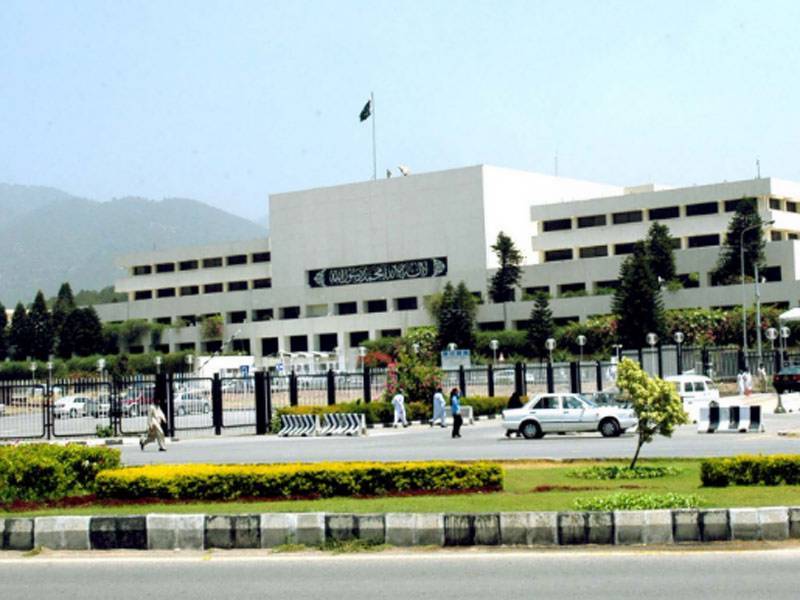 The Supreme Court on Friday disqualified Nawaz Sharif for life and ordered the National Accountability Bureau (NAB) to file references against him, his children and ex-finance minister Ishaq Dar. It is indeed an epoch-making verdict, as this is the first time that holder of the highest public office has been sent packing home for not being sadiq and amen. The verdict by the 5-member bench headed by Justice Asif Saeed Khan Khosa in Panama leaks case involving corruption allegations against Sharif family was unanimous. At the heart of the case was the legitimacy of the funds used by the Sharif family to purchase several London properties via offshore companies. The court in its April judgment had found enough reasons to carry out a further probe by a six-member JIT, which reported “significant disparity” between the family’s income and lifestyle, and unearthed Sharif’s links to companies based in the United Arab Emirates.
The Supreme Court on Friday disqualified Nawaz Sharif for life and ordered the National Accountability Bureau (NAB) to file references against him, his children and ex-finance minister Ishaq Dar. It is indeed an epoch-making verdict, as this is the first time that holder of the highest public office has been sent packing home for not being sadiq and amen. The verdict by the 5-member bench headed by Justice Asif Saeed Khan Khosa in Panama leaks case involving corruption allegations against Sharif family was unanimous. At the heart of the case was the legitimacy of the funds used by the Sharif family to purchase several London properties via offshore companies. The court in its April judgment had found enough reasons to carry out a further probe by a six-member JIT, which reported “significant disparity” between the family’s income and lifestyle, and unearthed Sharif’s links to companies based in the United Arab Emirates.
The JIT had unearthed that Nawaz Sharif was chairman of his elder son’s company in UAE, something he had not declared in his nomination papers for the election. The court cited it as the reason for declaring that he was “not honest” and hence ineligible to continue as premier, as per Article 62 of the constitution. The court directed the Election Commission of Pakistan to issue notification for the disqualification of Nawaz Sharif from being a MNA with immediate effect, which has been done and he ceases to be the prime minister. The Supreme Court called on President Mamnoon Hussain to take the “necessary steps under the Constitution to ensure the continuation of the democratic system”. In October 1999, Nawaz Sharif was overthrown in a counter-coup when he tried to sack COAS Pervez Musharraf.
Under an agreement, Mian Nawaz Sharif was allowed to go to Saudi Arabia and he remained in exile up to 2007, where he had all the comforts and luxuries one can dream off. However, the only thing he was missing was a large number of courtiers and followers to amuse him by chanting slogans ‘prime minister Nawaz Sharif’. He had arrogated to himself the powers that his should be the final word on every issue. It was because of his arrogance that all parties of the country were united on the platform of Grand Democratic Alliance in late 1990s, and had described Mian Nawaz Sharif as a civilian dictator, a security risk and a ruler who was at war with all the institutions of the country. Mian Nawaz Sharif had to his credit resignations of two presidents late Ghulam Ishaq and Farouq Leghari, and resignation of army chief Jahangir Karamat.
He was reportedly at loggerheads with former army chiefs Aslam Beg, Asif Janjua, and of course Pervez Musharraf over Kargil episode. He was overthrown while trying to sack General Pervez Musharraf when he was returning from Sri Lanka and was airborne. After his return, he became champion of independence of judiciary though he was known to have disgraced chief justice Sajjad Ali Shah when the PML-N activists stormed the Supreme Court. As a matter of fact, Nawaz Sharif is not willing to accept the views of others and wants either to prevail upon the majority and also the institutions. But this is no democracy. It is in fact authoritarianism. In 1998, PML (N) had introduced 15th amendment, arguably to give the prime minister powers of Amir-ul-Momeneen, which was passed in the National Assembly but could not get through the Senate because the PML-N lacked numbers.
In 1997 elections, he had enjoyed two-third majority in the National Assembly, which according to his critics had gone to his head, and he considered heads of all the institutions as his personal servants. No democrat or a person with average common sense would support martial law or military dispensation, but the politicians by their internecine conflicts and politics of confrontation had brought the country to a pass when the army chiefs found justification to tell the warring politicians that enough was enough. On 12th October 1999, all the political parties and people at large had welcomed General Pervez Musharraf and sweets were distributed throughout the country. Nawaz Sharif all along was living under the illusion of being Amir-ul-Momeneen, and felt that he had the ‘divine right’ to impose his will on others. It is his mindset that has brought him to the present pass.
- Latest
- Trending



